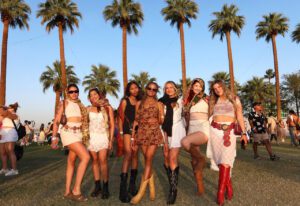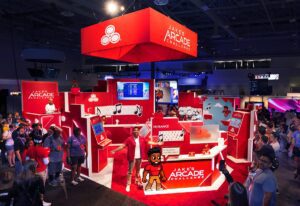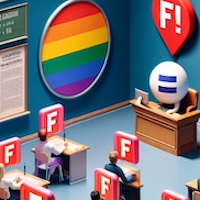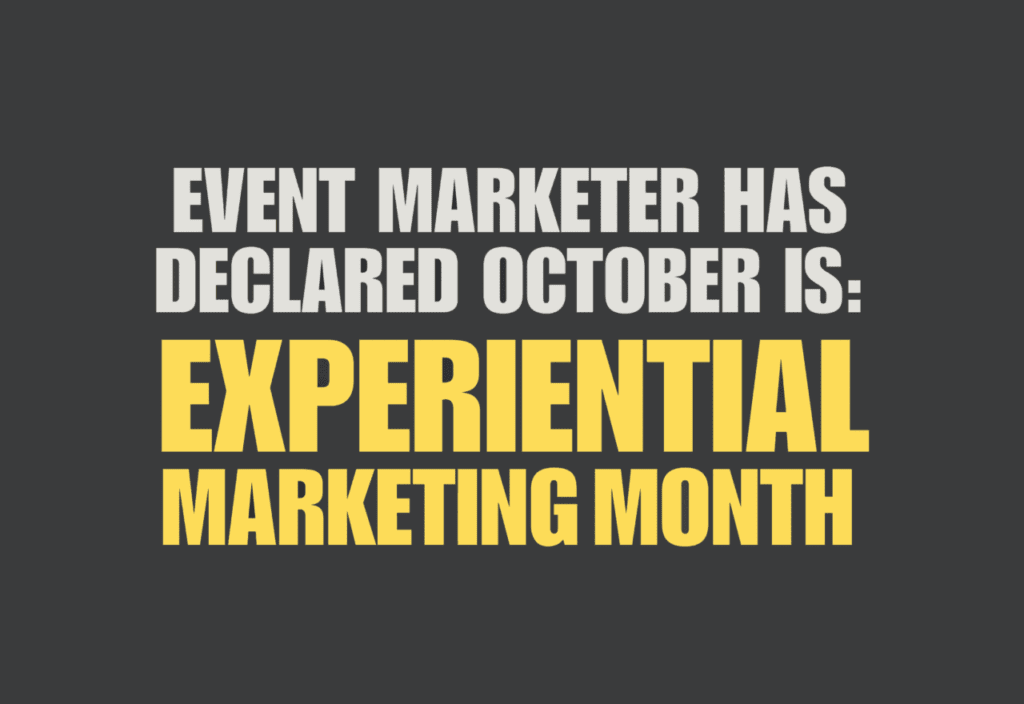Laptops usually aren’t seen as fashion statements. But they were at an event hosted last year by Dell Computer.
Dell wanted to showcase the new color options for its Inspiron and XPX models. So it worked with Campos Creative Works to conduct a fashion show at Macy’s in Manhattan’s Herald Square.
A model dressed in white strolled down the runway. Her dress changed color — as did the entire room — when the announcer described the new shades.
This caused people to view laptops in a whole new way.
“People don’t buy a product anymore just for the product, but for the experience of the product,” says CCW founder Julio Campos. “Companies want to create an emotional connection, and advertising can’t do that.”
Dell isn’t the only firm to realize this, judging by Promo’s 2008 event marketing survey. Almost a third of our readers did more event or experiential marketing in 2007, and a like number spent more money on it.
This year should be similar. Of those polled, 30% plan to spend more on events, and 42% expect to hold steady. Only 11% anticipate a decrease.
Granted, that’s not explosive growth. Overall spending on events is flat, and that reflects the current economy, according to John Shea, executive vice president of marketing for Octagon.
“How do you do more on the same budget?” he says. “I don’t think it’s an uncommon request.”
But we’re not talking about small change. Roughly 30% spent between $100,000 and $499,000 on events in 2007, and 27% allocated from $1 million to $5 million. Additionally, 30% now devote a fifth or more of their total marketing budgets to event sponsorship and hosting.
“Companies realize they can define their brands by having consumers touch, feel and understand them,” says Brad Nierenberg, CEO of RedPeg Marketing. “Traditional advertising is less effective because consumers are barraged with brand messages on a daily basis.”
One active event marketer is Burger King. It is bringing its NFL sponsorship to the grassroots level with a tour called the “Have It Your Way NFL Challenge.” It started last month.
Fans are being invited to compete in football trivia contests for prizes, including BK Crown Cards and NFL merchandise. A traveling 40- by 20-foot booth will hit stadiums in Baltimore, Jacksonville and San Francisco, preceded by stops at Burger King restaurants in each city. The booth also will make two playoff appearances before concluding its tour at the Super Bowl.
“Burger King wanted to create some awareness about its sponsorship and drive traffic to its restaurants,” says Brian Ferber, account director for Legacy Marketing Partners, which developed the campaign. “We’re working where Burger King has local team deals.”
Then there’s AT&T Mobility. It shows up at college sporting events and NASCAR races, and would like to expand beyond booths, according to Tim McGhee, director of national sponsorships for the mobile service provider.
“If you look at what we spend on advertising, we are everywhere,” McGhee says. “The benefit of event marketing is you’ll never have the same opportunity for personal contact with a 30-second spot.”
What else are events good for? Everything from BMW test drives to viewing NFL Mobile video content on Sprint mobile phones.
“Touch it, feel it, smell it, see how it works,” Shea says. “A lot of it has to do with giving customers that three-dimensional brand experience.”
Not that events always run smoothly.
One irritant is ambush marketing. This occurs when a firm — usually a competitor — sets up near an event with which it has no affiliation.
More than 30% of our respondents have performed ambush tactics, and 26% indicated they’d been ambushed.
That’s not the only thing that can go wrong. Weather, too, is always a threat.
How do brand marketers protect themselves against it?
One way is by insuring the event. Nearly 38% now do so. Of those, only 5% reported filing any sort of claim.
PART OF THE MIX
Another finding of our snapshot survey was that event marketing is usually supported by other promotional activities.
For example, 65% ran event-related sweepstakes or contests last year, 55% did sampling, and 49% distributed coupons. In addition, 44% placed local advertising and 43% had radio tie-ins. Finally, over 60% of those surveyed employed some form of data collection.
The data infusion is making experiential marketing less of a crapshoot.
One more trend is the use of point-of-sale kiosks at events.
“In the past, people did events almost as a branding exercise or to sample or gain awareness,” says Charlie Horsey, CEO of the mktgpartners agency. These days, he adds, clients are “providing opportunities to buy products or services at the events.”
Among other things, this helps such firms justify the expense.
Brands are also trying to better integrate their event marketing. Many launch campaigns, then broaden them in other channels.
Take Jeep. It sponsored the Tim McGraw-Faith Hill Soul-to-Soul tour.
McGraw-Hill fans tend to be prospective Jeep buyers. And they’re emotional about it.
McGraw and Hill appeared on Oprah Winfrey’s show and talked about how their romantic spark was lit during a leisurely ride in a Jeep.
The 40-concert tour featured an array of Jeep models and a cutout photo of McGraw and Hill in the Jeep that started them off.
“We were able to leverage something that was pretty high-profile that Jeep didn’t have to pay for,” says David Rich, senior vice president of strategic marketing worldwide for George P. Johnson Event Marketing.
Meanwhile, Jeep ran an online contest soliciting owners’ personal stories about their vehicles. This had a viral component, and drove traffic both to the McGraw and Hill Web sites and the Jeep site.
It shows how big an event can be.
Methodology
This survey was conducted for Promo by Penton Research, an in-house firm. It was e-mailed to 9,644 Promo subscribers. Participants were sent an initial copy of the survey Nov. 13, which offered a chance to win one of four $50 Amazon.com gift certificates. A follow-up e-mail, along with the sweepstakes offer, went to non-respondents.
Results are based on 159 surveys returned by qualified participants.
For more information on events, go to www.promomagazine.com.



 Network
Network

